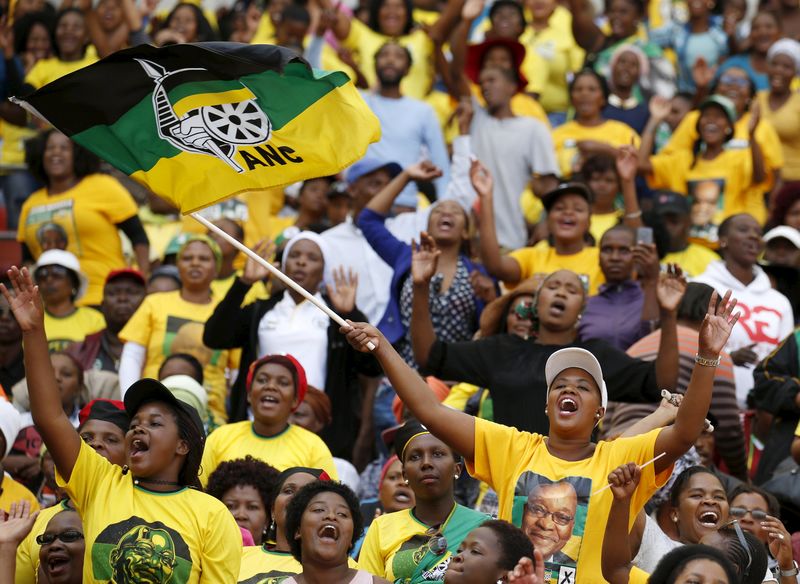By Mfuneko Toyana
JOHANNESBURG (Reuters) - The International Monetary Fund warned South Africa on Thursday its economy is extremely vulnerable to external shocks and funding shortfalls, although it stuck by its earlier growth forecast of 1 percent this year.
In an executive report following a country visit in the last week of June, the Fund also said policy uncertainty linked to political turbulence would weigh on business and consumer confidence.
South Africa's economy entered recession in the first quarter and is suffering from an unemployment rates of close to 28 percent.
Bitter divisions inside the ruling African National Congress (ANC) as the contest to replace President Jacob Zuma intensifies have also raised investor fears that policy to revive growth would take a backseat.
"Following last year's near-standstill in economic activity, growth is projected to increase to 1 percent in 2017 and 1.2 percent in 2018, still insufficient to keep pace with the rising population," the IMF said in the report.
Investor confidence has been subdued by political uncertainty following the axing of respected finance minister Pravin Gordhan in March and a subsequent credit downgrades to sub-investment.
It has also been rattle by worries over the central bank's future independence and by plans for the redistribution of land.
Gross domestic product contracted 0.7 percent in the first quarter after contracting 0.3 percent in the fourth quarter of 2016, dragging the economy into its first recession in nearly a decade.
"External and domestic contexts could result in significant shocks ... especially if accompanied by further downgrades of local currency sovereign credit ratings to below investment grade," the fund said.
On government debt, the IMF said: "Low growth has taken a toll on the state of the public finances, increasing government debt."
It said the government's balance sheet is also exposed to sizable contingent liabilities from state-owned enterprises.
Finance Minister Malusi Gigaba, under pressure to detail plans to turnaround the economy and avoid credit downgrades deeper into junk, said last week the country may be forced to seek outside financial assistance if the economy kept sinking.
This week he announced a 2.3 billion rand ($176 million) bailout of state-owned South African Airways, one of a clutch of state firms heavily dependent on government guarantees totaling nearly 500 billion rand, about a third of total state expenditure.
